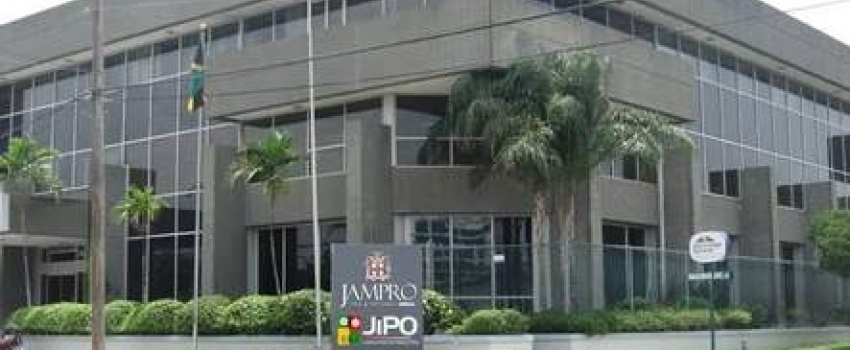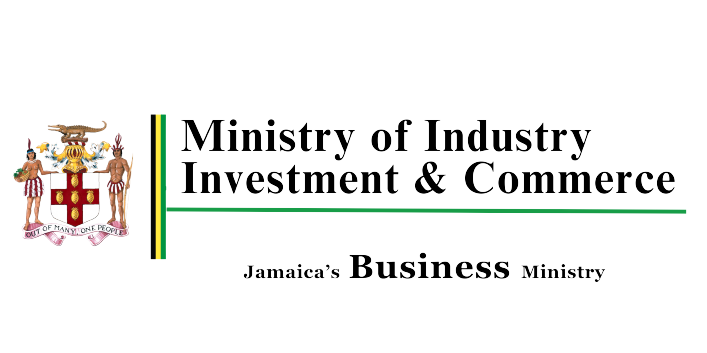
The JIPO office is located in the Jampro building in New Kingston, St Andrew.
RECENTLY, there have been major developments in Jamaica's intellectual property (IP) landscape. These changes include the bringing into effect of the much-anticipated Patents and Design Act, 2020 and the Trade Marks (Amendment) Act, 2021.
The Patents and Design Act came into effect on February 11, 2022. Some of the main effects of this Act include that the ancient Patents Act, 1857 and the Designs Act, 1937 were repealed and the Jamaica Intellectual Property Office (JIPO) will now exercise the powers that were previously given to the attorney general under the Patents Act, 1857. Previously, an application was very complicated and the full application, which includes the specification (which sets out the details of the invention), four-consecutive weekly advertisements in a local newspaper and the Jamaica Gazette, the petition, the declaration and the forms of letters patent (which is to be signed by the governor general) for the grant of a patent, all needed to be sent to JIPO and then be sent by JIPO to the attorney general's office. The attorney general would then have to approve the application and recommend that the governor general grant the patent. Now, each application will be overseen by JIPO and will be much simpler in nature.
Under the old Patents Act, once a patent was granted, it would be in effect for 14 years. Now, under the new Act, once a patent is granted, it will be in effect for 20 years, so long as the required annual maintenance fees are paid. This means an increase in revenue for the country. The new Act will also do away with the requirement for advertisements to be placed for four consecutive weeks in both a daily newspaper and the Jamaica Gazette. Under the new Act, publication will be via the Intellectual Property Journal to be published by JIPO.
Traditionally, patents are one of the hardest intellectual property rights to obtain. It requires the drafting of a specification which sets out all of the claims and details of a patent. This is usually a very technical document which requires expertise to draft. An invention can only qualify for protection if it is new, involves an inventive step, and it is capable of industrial protection. However, under the new Act, an applicant who may not meet the standard for a patent could still obtain protection via an application for a utility model. The threshold for a utility model is less than that of a patent and an invention will qualify for protection if it is new and capable of industrial application. This was not previously possible under the old Act.
This new Act brings the patent and design regime in line with other jurisdictions.
On March 27, 2022, the Trade Marks (Amendment) Act, 2021 will come into force. These amendments will bring into effect the Madrid Protocol. It is also anticipated that there will be an increase in the fees that JIPO will charge for applications. As at March 4, 2022, the new fees to be applied have not been advised to the public. The Madrid Protocol is seen as a way for entities to file simultaneous applications to register trademarks in multiple jurisdictions. Each jurisdiction that an applicant chooses is a designation. This means that individuals and entities that are nationals of Jamaica or domiciled in Jamaica will be able to file an application to register a trademark in Jamaica and other designated jurisdictions. At the time of the filing of the national application, the applicant must indicate the other jurisdictions that they wish to file in as well.
Filing under the Madrid Protocol and obtaining registration in one country does not mean that a trademark is automatically protected in all of the other jurisdictions that have effected the Madrid Protocol. Each jurisdiction is treated as a separate application and the application will undergo a national process in that country. Additionally, application fees will apply for each jurisdiction. An application is not guaranteed to proceed to registration in all of the designated countries that have been chosen, even if the application is granted in other jurisdictions. Each jurisdiction is nuanced and there may be impediments in one jurisdiction that is not present in another. An example of such an impediment could be an identical or existing mark that has already been registered in that country. The respective intellectual property office of each country could refuse registration on that basis, or if the application proceeds to publication, the owner of a similar mark could choose to object to the mark. Further, the owner of that mark could be alerted to the other applications in the other jurisdictions, and if they are a member of a Paris Convention Country, they could choose to raise objections in the other jurisdictions where applications have been filed.
The Madrid Protocol is a means of streamlining the application process, but applicants will have to monitor each application. Some applicants filing applications in multiple jurisdictions may choose to carry out searches in each jurisdiction to ensure that there are no identical or similar marks already on that register. Although the application process for filing in designated countries may be streamed lined, and seemingly easier, it may behove applicants to carry out their due diligence, as oppositions and office actions raised by the respective intellectual property offices can become expensive.
Both the Patents and Design Act, 2020 and the Trade Marks (Amendment) Act, 2021 will change the IP landscape in Jamaica. It will be interesting to see how many applicants utilise the Madrid protocol to protect their IP in other jurisdictions.
Helen Liu is an associate at Myers, Fletcher & Gordon, and is a member of the firm's Commercial Department. Helen may be contacted via Helen.Liu@mfg.com.jm or www.myersfletcher.com. This article is for general information purposes only and does not constitute legal advice.
Source: Jamaica Observer









